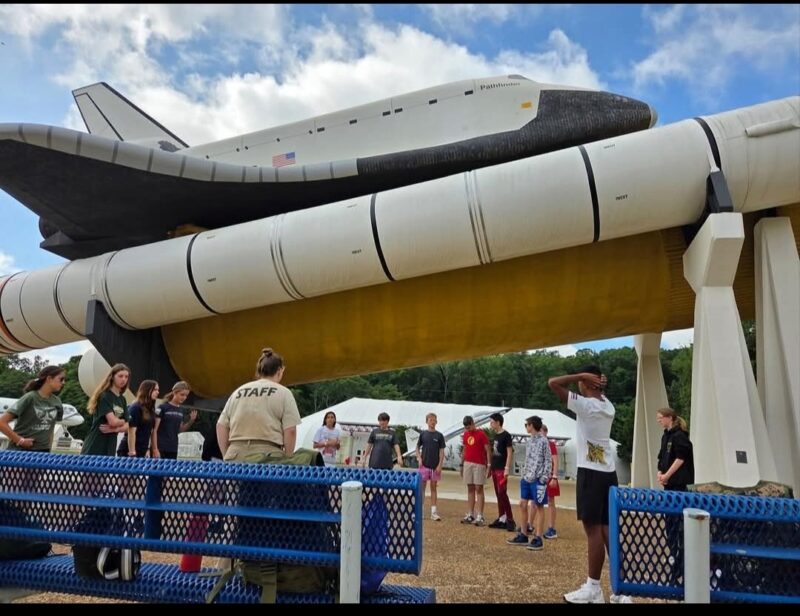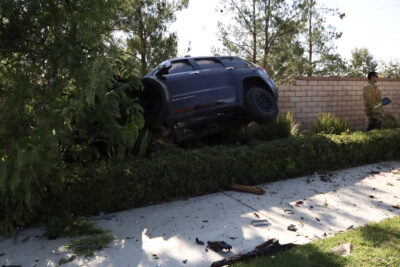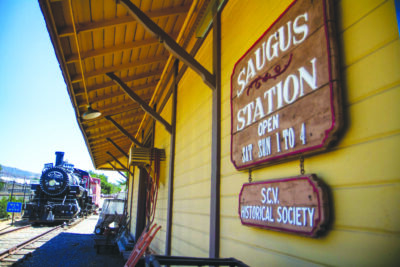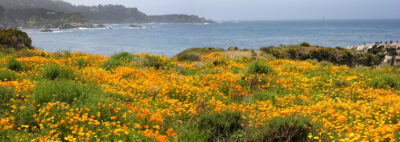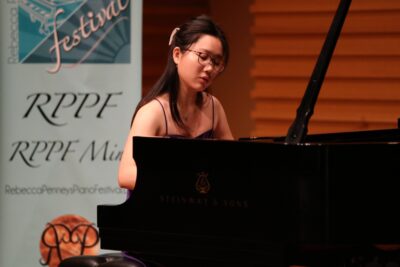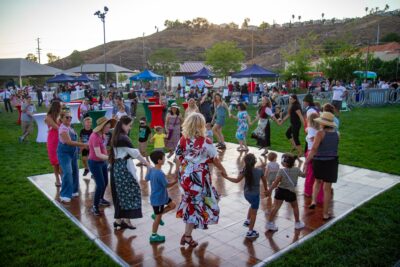Four teens from the Santa Clarita Valley Young Marines completed the Mach II Aviation Challenge in June at NASA’s United States Space and Rocket Center in Huntsville, Alabama.
According to a release from the Young Marines, Julian Callejas, Jameson Kehoe, Cooper Kehoe and Riley Peña completed a fast-paced, military-inspired program in which they and others were tested in their knowledge of aerodynamics and teamwork. During a recent Zoom call, each of the four Young Marines talked about the experience and how it changed their outlook on life ahead of them.
Catherine Hagopian, SCV Young Marines adjutant, supply officer and event coordinator, spoke about how Young Marines who participated in the NASA camp were chosen from units across the country. The four local teens were among 36 total Young Marines to attend.
“They have to qualify for it,” Hagopian said. “They have to keep up with their drug education, which is three hours a quarter. And we offer physical fitness two times every six months. They’re supposed to do at least one every six months.”
Callejas, 14, from Saugus, will begin attending Castaic High School this fall. Although he hopes to become a lawyer, he said being a Young Marine has taught him valuable skills like teamwork, leadership and discipline, as well as survival techniques such as building a tent, starting a fire and finding safe drinking water in unclean environments.
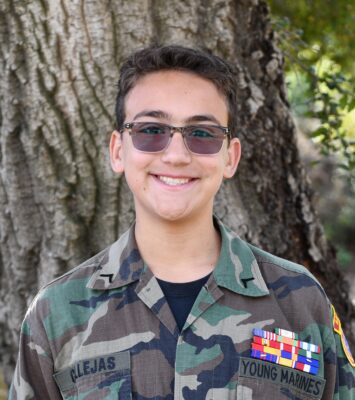
Jameson Kehoe, 14, and his brother Cooper, 13, are from Canyon Country. They’re homeschooled.
Jameson said he enjoys staying physically active and going on trips with the Young Marines. While he’s not completely sure about his future plans, he’s leaning toward a career in aviation.
Cooper said he likes the community service aspect of being a Young Marine. He, too, wasn’t sure what he wanted to do for a career, but he enjoyed the experience of the camp.
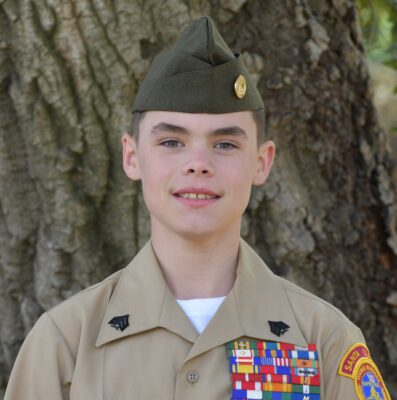
Peña, 14, who lives in Los Angeles and is an SCV Young Marine, said the camp was very beneficial to him. He hopes to one day become a commercial airline pilot.
According to a Young Marines release, the NASA camp took place over the course of six days in June at the rocket center. While there, participants learned about aeronautics, propulsion and aviation history; they flew a UAV (unmanned aerial vehicle) drone simulator to reinforce lessons learned at static displays and artifacts; they mastered aerial combat and competed to be the best of the best in “Top Gun”; and they embarked on a search and rescue mission to bring a downed pilot back from behind enemy lines while communicating as a team and evading hostile forces.
Col. William Davis, national executive director and CEO of the Young Marines, said completion of the course is a major accomplishment and a life-changing experience.
“Our Young Marines enthusiastically answered the challenge that the NASA camp put before them,” Davis said in a prepared statement. “With purpose, creativity and strategic thinking, our Young Marines completed every task assigned to them.”
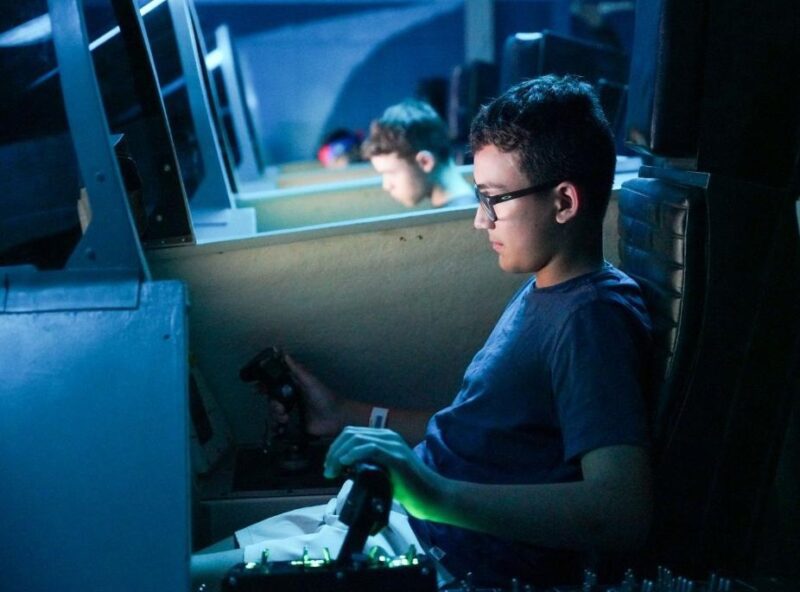
Callejas spoke about how he and others at the camp learned about different parts of airplanes — what made them go faster, and what made them stop.
“We did the simulation of a plane crash,” he said, “swimming to a life raft, and then a helicopter lift.”
The crash simulator, he explained, was submerged in water, and participants had to swim through the windows for safety. He and others did one of these kinds of activities after another, each one a challenge and each one fun.
And while Callejas had no plans of becoming a pilot, he felt he picked up many life skills.
“We did some patrolling, and you would go in a line with your teammates,” he said. “You had to work together. I definitely think learning how to work with each other could help in the future, even with today’s daily tasks and just making sure that everybody is being heard and you’re all collaborating.”
Jameson said he enjoyed an activity he called “the scenic theaters” most because he got to fly in F-15 Eagle fighter jet simulators.
“We got to learn about all the buttons and the missiles and how the plane works,” he said. “We also learned different things about planes, like the ailerons and the different forces of the flight. And we slept in barracks. That was pretty cool.”
He also brought up museum trips they made to learn about different types of rockets and satellites.
Cooper said he liked the flight simulators the most. He especially enjoyed combat runs with others in his group.
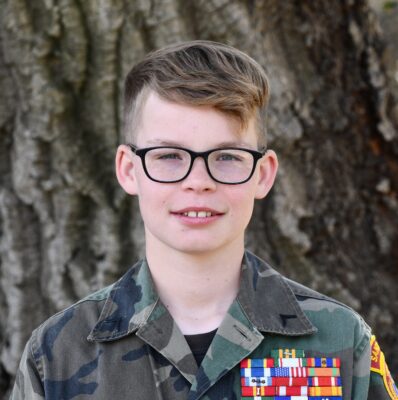
Peña shared some of the activities he experienced, including one he called “aviation challenge.”
“We went to a big building with flight sims,” he said. “It was really awesome. We also did this thing called Moon Shot.”
Moon Shot, according to the U.S. Space and Rocket Center website, is a simulator in which participants take a seat, strap in and are launched 140 feet upward in 2.5 seconds. Participants experienced 4 Gs of force on launch and two to three seconds of weightlessness before a 1 G fall back down to the ground.
Peña also spoke about something called the “Barany Chair,” a chair that spins and simulates false physical sensations that a pilot might encounter while in flight.
“It was pretty much just simulating, like, if you had tunnel vision and you went unconscious,” he said. “And you’re spinning really fast. You had your eyes closed, your fists (clenched) like this. You just spin for 45 seconds or 40 seconds, and then after that, you’d be so dizzy that it looks like you’re going to fall off the chair. Your eyes trick you into thinking that you’re in the other direction. But you have to look and point at a plank of wood. And I did it.”
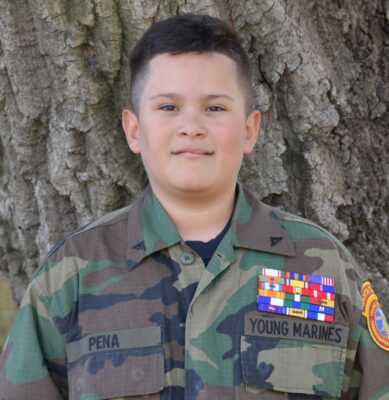
Peña hopes the experiences at the camp will help him in his journey to becoming a pilot.
“I mean, I’m not going to be flying fighter jets like I did there (at the camp),” he said. “Nothing like that. I’m going to be flying, like, normal planes. The buttons are pretty similar, but I guess a little bit different because there’s not a big red button to shoot missiles.”
The Young Marines is a national nonprofit youth education and service program for boys and girls, age 8 to high school graduation. It focuses on teaching the values of leadership, teamwork and self-discipline. For more information, go to YoungMarines.org.

